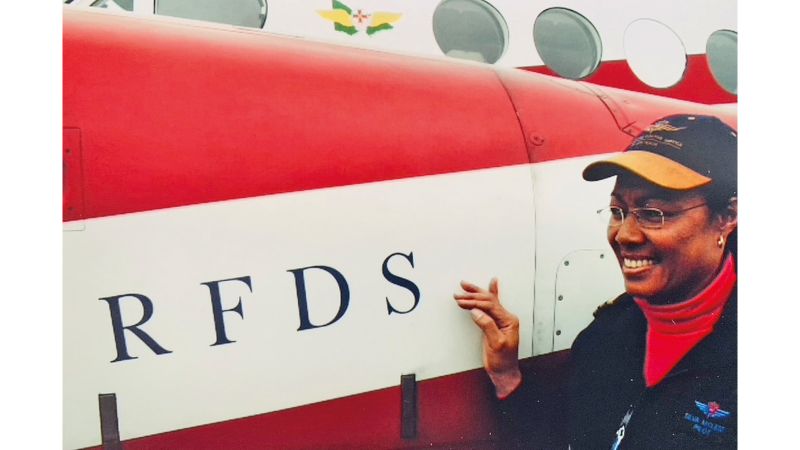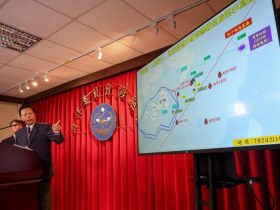Some little kids grow up dreaming of being pilots. Silva McLeod wasn’t one of them.
During her childhood on the Tongan island of Vava’u, she didn’t even know that being a pilot was a possible career.
But whenever a plane flew over the thatched hut she lived in with her family, little Silva would run outside to see.
“It was a fantasy as a child, as for every time an aircraft or the sign of an aircraft flying over, I’m always racing outside, pointing to the sky,” she says. “I wouldn’t say that I wanted to be a pilot, but it was that fascination, that curiosity in me that I thought, ‘Wow, what clever people are operating these machines.’”
Since then, much has changed for McLeod. She married, emigrated to Australia, and eventually became one of the clever people operating a flying machine. In doing so, she became one of only a handful of Tongan people ever to get a pilot’s license – and the first Tongan woman.
The long path to the sky
McLeod’s first time on a plane was in 1981, shortly after marrying her Australian husband Ken, whom she met when he came to Tonga to help build a hospital.
To get to his hometown in Victoria, they first had to fly in a small plane from Silva’s native Vava’u to the main island of Nuku’alofa, then fly from Nuku’alofa to Auckland, New Zealand, and finally travel from there to Melbourne.
The first flight was a disaster. They were flying in terrible weather, and water seeped in through a few small cracks in the plane’s body. The plane’s two pilots – both White men who weren’t from Tonga – made announcements in English, which most of the passengers couldn’t understand.
Although McLeod had long dreamed of learning about aviation, life got in the way. Her move to Australia required much more than relocating – she had to learn how to open a bank account, use a washing machine, read maps, drive a car and more. Soon, there were children added to the mix.
On her 32nd birthday, Ken presented his wife with a gift: a certificate for a basic introductory training flight. “Do you still want to learn to fly?” he asked. There was only one answer: yes.
Chipping away year by year, course by course, McLeod slowly worked her way toward becoming a pilot.
First she got her student license, then a restricted license, followed by a commercial license. Eventually, she was able to teach student pilots and fly small craft herself.
McLeod got her pilot’s license in 1992. According to the Australian Civil Aviation Safety Authority, that makes her the first Tongan woman to become a licensed pilot.
Still moving upward
McLeod may have had an atypical path toward the pilot’s seat, but she cherishes every moment she spends in the sky.
At age 37, she became a full-time pilot for Royal Tongan Airlines.
It was then that she was able to ease the memory of that terrifying flight the first time she’d left her island home.
“Delivering that (pilot address) in Tongan, flying in Tonga, I felt like my mission was accomplished,” she says. “Anything coming after that was bonus. If I die flying in Tonga, I would be the happiest pilot ever lived.”
That dream didn’t last, though. In 2004, the airline shut down. For McLeod, Royal Tongan’s demise was about more than losing a job. In order for young people to pursue careers in aviation, they need a place to train and to work.
Not having a national airline or national flight school can essentially be a death knell for a marginalized, under-served nation like Tonga. If McLeod hadn’t met her husband and been able to live and work overseas, odds are she would never have been able to achieve her dream. The other Tongan pilots she knows of were also trained abroad. There’s no flight school in Tonga where they’d be able to return and mentor the next generation.
Still, McLeod will always think of herself as a little girl growing up without electricity or a flush toilet, running around barefoot on a tropical island.
After losing Ken to cancer, she coped by writing a memoir, “Island Girl to Airline Pilot: A story of love, sacrifice and taking flight,” which was published in 2023. She hopes the book will give hope to other people from marginalized backgrounds who want to work in the aviation industry.
“Never look to the top of the mountain,” she says by way of advice. “Because that’s when you quit. It’s too high, too hard. But if you just focus on that step in front, chip away bit by bit, before you know it you have advanced right up halfway to the mountain.”






